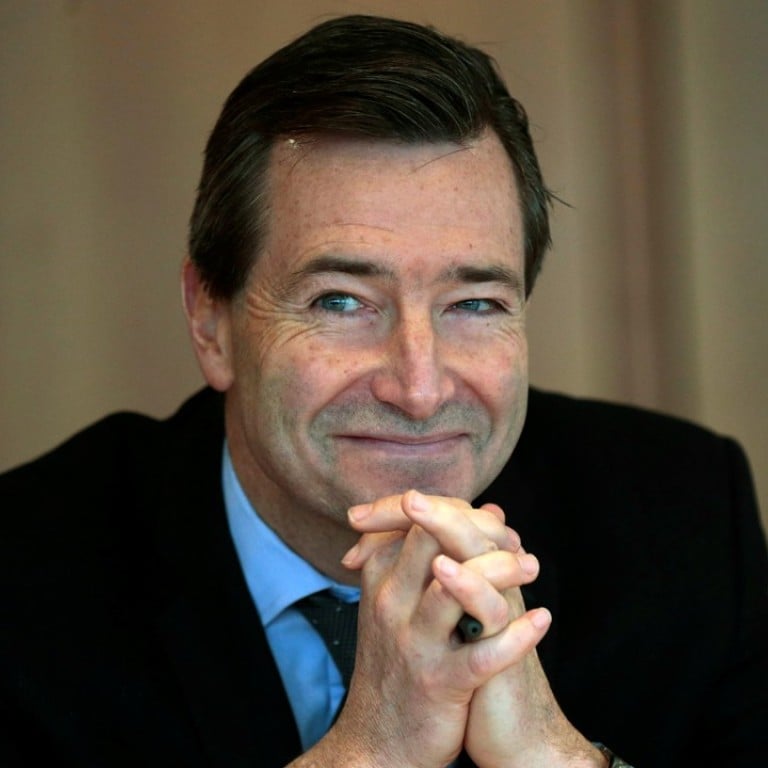
Financial Times CEO John Ridding returns ‘anomalous’ pay rise after reporters protest
‘John Ridding was paid 100 times the salary of a trainee journalist in 2017’
Financial Times Chief Executive John Ridding is to pay back about a quarter of his £2.6 million (US$3.3 million) salary after a group of the newspaper’s reporters complained about his latest pay rise.
Steve Bird, joint head of the National Union of Journalists at the newspaper, wrote to FT editors and journalists this month saying Ridding’s pay was absurdly high and calling for him to give some back to help those on lower salaries.
Ridding said in an email to staff that his salary had been set by Japanese media group Nikkei, which bought the FT for US$1.3 billion in 2015, adding it was independently assessed and “highly performance-related”.
“While our performance has been strong, I recognise that the size of the consequent jump in my own total reward in 2017 feels anomalous and has created concerns,” he wrote. Ridding said he had decided his remuneration should be restructured.

Ridding said “the first call” on the money would be a women’s development fund to boost the FT’s efforts to promote women to more senior roles and reduce the gender pay gap.
While our performance has been strong, I recognise that the size of the consequent jump in my own total reward in 2017 feels anomalous and has created concerns
“The balance of funds will be used to help meet the company’s overall financial objectives,” he said.
The journalists’ union at the FT unanimously passed a resolution welcoming Redding’s actions, but said they did not go far enough and demanded higher pay for trainees and above-inflation pay increases for other employees.
Ridding should also clarify what he would be paid this year, and forego his bonus for 2018, the resolution said.
“We believe the company should respond to the widespread anger among staff as a matter of urgency,” the newspaper’s union chapel said in a statement.
“If we do not receive a timely response to all of our demands, we instruct chapel reps to place this matter into dispute and take such steps as may be necessary, up to and including balloting for industrial action.”
Before Ridding’s announcement, the union had rallied staff to action. “John Ridding was paid 100 times the salary of a trainee journalist in 2017,” said one union email. “His pay rise of more than 25 per cent last year was more than double the median FTSE 100 chief executive pay increase last year, which, as we report today, was a greedy 11 per cent.”
Nikkei said in a statement it was very satisfied with the growth of the newspaper under Ridding and his team, and the success of the FT-Nikkei partnership.
“We respect and support his proposal to adjust his remuneration to refocus attention on the FT’s mission,” it said.
Additional reporting by The Guardian

